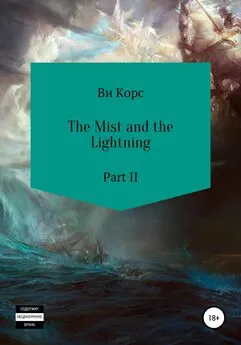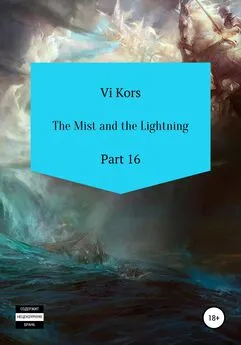Rafael Sabatini - The Curate and the Actress
- Название:The Curate and the Actress
- Автор:
- Жанр:
- Издательство:неизвестно
- Год:неизвестен
- ISBN:нет данных
- Рейтинг:
- Избранное:Добавить в избранное
-
Отзывы:
-
Ваша оценка:
Rafael Sabatini - The Curate and the Actress краткое содержание
The Curate and the Actress - читать онлайн бесплатно полную версию (весь текст целиком)
Интервал:
Закладка:
The Curate and the Actress
By Rafael Sabatini
When I mention that Andrew Barrington was a saint, it is almost unnecessary for me to add that he had no pretentions to that emptiest of empty titles, "A Man of the World," for it is already an established and recognised fact that Sanctity is a quality not generally reckoned among the many accomplishments of such.
To thoroughly avoid evil it is necessary to be on intimate terms with it, and where a hardened sinner would have triflingly withstood its onslaught, the Reverend Andrew Barrington was conquered and laid by the heels, despite his armour of piety and virtue, on the strength of which he had reckoned over confidently.
Now, when Andrew's landlady diffidently mentioned that a young lady of the theatrical profession had taken rooms, for a month or so, in her house, a man of the world would have said to himself, "Let us have a look at her." He would have availed himself of the first opportunity to submit the lady to his critical eye, remarking perhaps, "not bad," and then his blase spirit would have been at rest, and he would have thought of her no more.
But Andrew's mode of procedure was unfortunately a less wise, and, despite his sanctity, a less exemplary one.
He grew red in the face when the news was brought to him and worried over the event for two entire days―and the better part of two nights, which resulted in a certain pallor and seedy appearance settling upon his countenance, such as slanderous tongues―if there were any in the world―might set down to dissipation.
To have a woman, and a young one to wit, sharing the same roof was evil enough; but that this woman should be an actress!―a saintly shudder ran through his slender young frame at the mere thought, and for forty-eight consecutive hours he dared not venture forth lest he should chance upon this vulgar painted female, with straw-coloured hair and pencilled lashes, of whom he had caught a glimpse through the window on the day following upon that of her arrival.
He had been glad to come to Stollbridge, for it promised him freedom to pursue his studies in peace, and away from the world; and here, upon his retreat, the fates had flung a very substantial sample of that world which he sought to be rid of for a while.
For two whole days he revolved the painful matter in his mind, with the obvious result that when he awoke upon the third morning after the lady's advent, he was firmly resolved upon setting out that day in quest of new and uncontaminated quarters for his meditations.
His manner was scarcely genial when he apprised Mrs. Jones of his determination, but there are bounds even to the endurance of a curate, and there are times when a little warmth of expression may be justifiable in him.
His landlady was disconsolate, and a corner of her apron was called into requisition as an illustration of her grief and an ally to her protestations, but Andrew was obdurate.
"It was unkind of you, Mrs. Jones," he said, "to have done this. Moreover, it was injudicious and unbusinesslike―for seeing that there was every possibility of my remaining with you for the next year, I think that I might have been consulted before this er―ahem―lady"―and the saint's tones grew actually sarcastic over the word―"was admitted to the same house for a single month."
"I didn't know, sir, as you'd object!" whimpered the landlady.
The silent look which the curate bestowed upon her in reply contained more eloquence than could be found in all the orations of Cicero, and the manner in which he slammed the door after his departing self told of a resolve that no living thing could alter.
He walked down to the office of the biweekly, Stollbridge Chronicle, and, having handed in an advertisement, wherein he vain-gloriously announced himself as a young gentleman of quiet and studious habits, he set off at a brisk pace towards the river.
He hired a boat and was soon speeding up-stream, propelled by long sweeping strokes that belied the apparent frailty of his slender figure.
Having sculled himself into a perspiration and into a quiet backwater, he tied the painter to the trunk of a tree, and stretching himself in the bottom of the boat, he produced a calf-bound copy of Hyland's "Advanced Psychology," and was soon lost in its metaphysical depths to the world in general and the haunting idea of the yellow-haired actress in particular.
"Excuse me, sir," said a sweet, melodious voice, breaking in upon Andrew's studies and dragging him from the dry abstract into a very interesting study of the concrete, "but could you direct me to Stolibridge?"
The young man's head went half-way round his Roman collar, and his eyes opened very wide, the better to behold the charming apparition standing on the bank close by, in a half-timid, half-respectful attitude.
So ecstatic was his admiration that he forgot to answer her question until she repeated it, whereupon he blushed like a girl and removed his hat.
"I know a short cut,"' he replied, "but if you are unacquainted with the country, I should advise you to keep to the river."
"Thank you. Is it far?"
"About four miles."
The girl gave a little frightened gasp. "Four miles," she echoed, "why it will be dusk before I get there. How annoying! This comes of exploring a country."
"Have you walked far?" he ventured timidly.
"Far!" she exclaimed, "I must have walked miles. I left Stollbridge at eleven this morning intending to visit Calvert Hall; I was told that there was a short cut across the fields which reduced the distance to two miles; I attempted to follow out the minute directions which I had received with the result that I lost myself hopelessly, and have been wandering about ever since."
"Dear me!" ejaculated Andrew, then added brilliantly, "You must be tired!"
"I should think I am," she answered; "wouldn't you be?"
Andrew confessed that such a contingency was probable, and then for a moment he pondered over something that had come into his mind. He noted that she was young, that she was very pretty, and very ladylike, both in dress and manner and this observation troubled him not a little. Had she been elderly or unattractive, his duty would have been clear to him. As it was―
He brought his reasoning to an abrupt termination by offering timidly to take her back to Stollbridge in his boat.
She hesitated at first, looked demure, and spoke of troubling and of not knowing him, but ended by accepting his invitation.
Of course, it could not be expected that these two would travel over those four miles of tranquil river in silence. They chatted affably, and the girl even displayed a certain spirit of innocent badinage which played sad havoc with Andrew's nerves.
He noticed that her eyes were dark and large, and had a trick of opening wide at times like those of a puzzled child; that her hair was of a bright auburn; that her complexion was as delicate as that of a peach; that her mouth was small and sensitive; and that her figure, although petite, was well proportioned. By the time they had travelled a mile, it occurred to the curate that there was no reason why he should fatigue himself by over-vigorous sculling. They would reach Stollbridge quite soon enough. Of course, he told himself that it was not of the least consequence when they arrived, but down in his heart of hearts he knew that he was not telling himself exactly the truth, for―well―she was very pretty, and fresh, and innocent, and he was very young. "You are of course a visitor at Stollbridge?" he inquired presently, and he actually began to fear the conversational powers that he was displaying.
"Oh yes," she replied frankly, "I am only here for three or four weeks."
Andrew was burning to ask her how much of the three or four weeks might still be left, but he thought the question too bold, so, with a sigh, he stifled it and grew silent.
"Do you often come on the river?" the girl inquired after a pause.
"Almost every day, when it is fine."
"And do you often pity ladies who have lost their way and take them back to Stollbridge in your boat?"
"I?" he ejaculated in accents of the profoundest horror. "I―I assure you that I do not!"
"What a pity!" she answered archly.
Andrew felt uncomfortable as the suspicion arose in his mind that, despite his cloth, she was amusing herself at his expense and he muttered something about understanding why the circumstance should be a lamentable one.
It was not until he had assisted her out of the boat at Stollbridge that she made her meaning clear to him.
"If it were a regular practice of yours," she said, and her eyes had a mischievous look in them like those of a kitten at play, "I might be tempted soon to lose myself again, for I never enjoyed the river so much as this evening. I wonder why?"
Andrew blushed up to the roots of his hair, and deemed her innocent outspokeness very embarrassing. Then, for the first time in his life, he became guilty of a gallant speech.
"No more have I," he replied in a whisper―for his sanctity was afraid that the innocent-looking boatman might have ears like other people―"and if you should contrive to lose yourself again―well―I should be happy to find you."
He realised that he had expressed himself clumsily, and yet he felt that he ought rather to be ashamed of his boldness. But then, as I have said already, he was very young, and she was very sweet and she had very wonderful eyes. Those eyes haunted him as he walked home alone, and he told himself a dozen times that he was a churl for not having seen her to the door of her dwelling in spite of her remonstrances.
For the next four days it rained almost incessantly, which kept Andrew indoors. Moreover, he was busy packing his belongings, for he had found suitable rooms near at hand, and he was preparing to move into them; this he eventually did, on the fifth day after his adventure.
He came across the lady with the straw-coloured hair once or twice before he left his old quarters, and his eyes scarcely contained upon such occasions that sympathetic benevolence which is supposed to be characteristic of churchmen.
At last he was installed in his new rooms, unpolluted by the presence of any painted ballet girl―for thus he now defined her.
The next day was Sunday, and, as principle forbade him from boating on that day of pious indolence, he was out of humour. He was especially concerned at not seeing his fair unknown in church, and at a loss how to account for her absence. But on the Monday, the weather being fine, he went out again and sculled himself into the same shady backwater by the old mill. Only he left his psychological volume behind him this time, and spent two solid hours watching the horizon and thinking of her lovely eyes. He was just beginning to despair, when suddenly the silence was broken by a voice, which, although he had heard it but once, was deeply graven on his memory.
"Please, sir, could you direct me to Stollbridge?"
He looked round to meet her laughing eyes, and laughing in return with pleasure and amusement, he rose as on the former occasion, to hand her into the boat.
And so it fell out that every day at about the same hour the syren's voice would come to ask the saint to show her the way to Stollbridge, until one day matters grew so bad that the Rev. Andrew Barrington actually allowed it to escape him, that he should be delighted not only to take her as far as Stollbfidge but a very considerable distance further.
As a matter of fact Andrew was in love and out of his senses, as a good many more young men have been, when too constantly thrown into the company of an attractive morsel of unchaperoned femininity.
Читать дальшеИнтервал:
Закладка:








